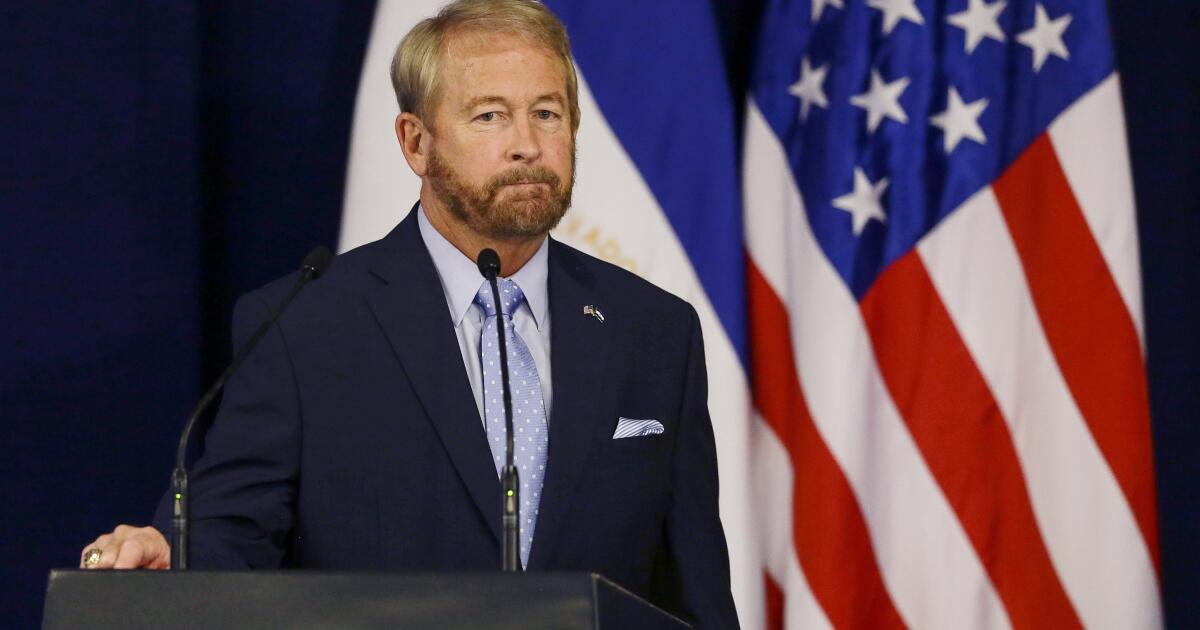Abbreviated Pundit Roundup is a long-running series published every morning that collects essential political discussion and analysis around the internet.
LAWFARE:
What Must Prosecutors Prove in Trump’s NY Trial?
Some in-the-weeds questions on which the New York Trump trial depends.
But what about the standard of proof for the object offense? Recently, legal commentators on Twitter have been debating whether Bragg must prove beyond a reasonable doubt that Trump committed that “other crime” as well, or just that he intended to commit it…
One way to think about this is to consider the burden of proof for the offenses listed under A and B. Must Bragg prove beyond a reasonable doubt that both sets of offenses occurred? Or must he prove that A occurred beyond a reasonable doubt, and prove Trump’s intent to commit one or all of the offenses in B—but not the fact that the offenses themselves occurred?
This distinction might seem nitpicky. But given the high burden of proof in a criminal case—proof beyond a reasonable doubt, as opposed to the lower preponderance of evidence standard in civil cases—it could be crucial. If Bragg must prove both A and B beyond a reasonable doubt, and the jury retains some uncertainty as to whether the object offenses under B actually occurred, that could sink the entire case. On the other hand, if Bragg must only prove A beyond a reasonable doubt, along with the intent to commit B, that potentially leaves prosecutors with more wiggle room to secure a conviction. Jurors might not buy with 99 percent certainty that the object crime was committed, but they could still vote to convict if they believe the intent was there.
As an initial matter, the text of Section 175.10 suggests that what’s required is proof of intent, rather than of the object crime.
Hey, here’s a rare chance to get your questions about voting rights answered (see above).
Mark Jacob/”Stop the Presses” on Substack:
The less people know, the more they like Trump
Republican voters find comfort in their intentional ignorance
A lot of Trump supporters are not really voting for Trump. They’re voting for their own fears and prejudices.
Trump is a channel for their grievances, and when it comes to the specifics of what Trump says and does, even his supporters don’t always buy in.
So what do they do about Trump’s immorality and Nazi-style rhetoric? They ignore it or laugh it off. They don’t want the specifics of Trump’s negative behavior to taint their vague but positive feelings about him.
Associated Press:
Money isn’t enough to smooth the path for Republican candidates hoping to retake the Senate
Frustrated by the seemingly endless cash flowing to Democrats, Republicans aiming to retake the Senate have rallied around candidates with plenty of their own money.
The goal is to neutralize Democrats’ roughly 2-to-1 financial advantage, among the few bright spots for a party defending twice as many Senate seats as Republicans this year. But it also risks elevating untested candidates who might not be prepared for the scrutiny often associated with fiercely contested Senate campaigns.
In Pennsylvania and Wisconsin, GOP Senate candidates are being pressed on whether they live in the state. In Montana, the party’s Senate candidate recently admitted lying about the circumstances of a gunshot wound he sustained. And in Ohio, the Republican contender pitched himself as financially independent but now may be turning to donors for help repaying loans he made to his campaign.
Walter Shapiro/The New Republic:
Joe Biden’s Terrible Approval Rating May Not Matter
The president’s approval rating is abysmal. But he can still win.
Six months before the most fateful election of our lifetimes, we are entering that moment in the campaign when model makers rush onstage hawking their presidential predictions. And, no, we are not talking about hobbyists who put ships in a bottle or glue together plastic replicas of World War II fight planes. These model makers are election theorists from academia, economic forecasting firms, and polling websites who offer their presidential forecasts based on their proprietary formulas—many of which are blithefully unconcerned with the identities of the actual White House contenders.
To oversimplify a bit, these mathematical approaches to political soothsaying involve combining some variant of presidential approval ratings, economic growth numbers, the inflation rate, prior election returns, and an exclusive blend of herbs and spices to reveal who is going to win long before anyone votes.
Almost nothing scares Democrats more than those ominous three words: “presidential approval rating.” But context is badly needed.
Jennifer Rubin/Washington Post:
The New York trial is wearing down Trump — and it shows
His nodding off in court is a sign that he is weaker and more vulnerable than ever.
On the very first day of Trump’s falsifying business records trial, New York Times reporter Maggie Haberman reported, “Even as a judge was hearing arguments on last-minute issues in a criminal case that centers on salacious allegations and threatens to upend his bid for the presidency, Mr. Trump appeared to nod off a few times, his mouth going slack and his head drooping onto his chest.” (That earned her a glare from Trump.)
Cliff Schecter with the latest on Marjorie Taylor Greene:




















